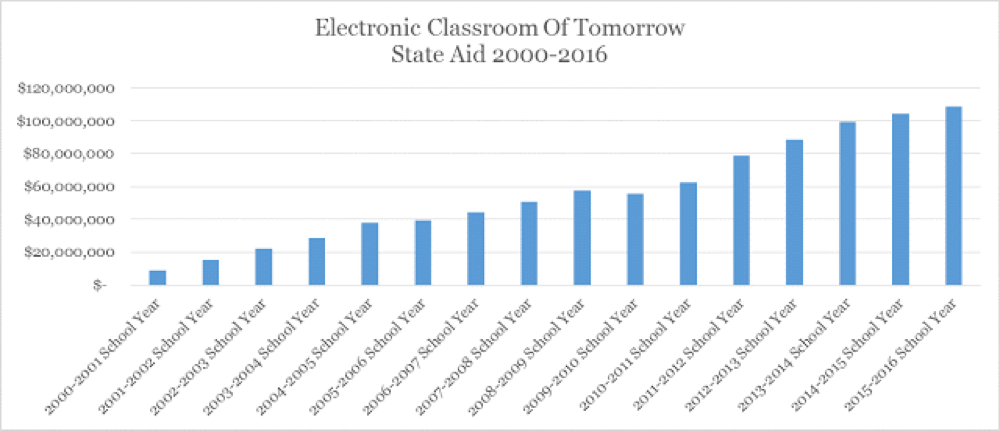What you need to know about Ohio Politics and Policy
Stephen Dyer · July 11, 2016
Accountability 101: If State Counts ECOT’s Kids, School May Close. Exactly.
If the Ohio Department of Education tries to verify that students at the Electronic Classroom of Tomorrow are online 5 hours a day, ECOT Superintendent Rick Teeters told email recipients, “they would likely force us and other e-schools to close our doors.” Exactly. It’s called accountability. At issue is ECOT’s whole business model — getting paid $7,127 per student (more per pupil state funding than 85 percent of Ohio’s traditional school districts) to simply offer 920 hours of curriculum to kids, not actually prove they are educating them. ECOT received $108 million last school year from the state, and has been paid nearly $1 billion since it opened in 2000. This is nothing less than an existential fight for the nation’s largest for-profit charter school.
ODE wants to verify that the kids it’s sending taxpayer money to educate actually logged on and off enough to justify the $108 million expenditure. ECOT claims in a lawsuit filed last week that ODE doesn’t understand its technology, which is so apparently groundbreaking that it allows kids to be educated effectively without logging in.
As Special Counsel to the Ohio Attorney General Douglas R. Cole put it in his filing responding to ECOT’s complaints,
“Under a plain, common-sense reading of the community school (charter school) funding statutes, ECOT is required to track. and ODE to reimburse for, actual student participation. Finding otherwise would render numerous (Ohio Revised Code) provisions … meaningless, and, as a more fundamental matter, the statutory scheme would not make sense.”
How else do regulators determine student participation in online educational experiences except through logging in and out of the system? It’s sort of like saying that a student in a traditional setting is “participating” even if the student shows up to school for a few minutes every so often. ECOT is arguing, essentially, that it should be paid in full for educating kids that barely show up simply because ECOT would let them in if they ever did show up.
It’d be one thing if ECOT’s performance indicated this novel approach actually worked. However, as has been documented over and over again, ECOT’s performance is among the worst of any school in the state, and it can’t even graduate 4 out of 10 kids.
So the returns aren’t great.
According to the Dispatch article about the ECOT lawsuit, we may have a hearing as early as today to decide whether ODE can proceed with its quasi-audit of ECOT’s kids. So we may have clarity about whether this count moves forward very shortly.
But if ECOT is forced to close because ODE is simply checking to make sure the school is educating students the state has already paid to educate, that says something about how ineffective ECOT has been.
And it explains, once again, just how lacking Ohio has been on charter school oversight. For it appears that all ODE had to do to overcome ECOT’s significant political clout was to simply ask them to prove their kids actually participate in an educational program.
And you wonder why Ohio’s charter school regime has been so mocked.
This is nothing less than an existential fight for the nation’s largest for-profit charter school.
ODE wants to verify that the kids it’s sending taxpayer money to educate actually logged on and off enough to justify the $108 million expenditure. ECOT claims in a lawsuit filed last week that ODE doesn’t understand its technology, which is so apparently groundbreaking that it allows kids to be educated effectively without logging in.
As Special Counsel to the Ohio Attorney General Douglas R. Cole put it in his filing responding to ECOT’s complaints,
“Under a plain, common-sense reading of the community school (charter school) funding statutes, ECOT is required to track. and ODE to reimburse for, actual student participation. Finding otherwise would render numerous (Ohio Revised Code) provisions … meaningless, and, as a more fundamental matter, the statutory scheme would not make sense.”
How else do regulators determine student participation in online educational experiences except through logging in and out of the system? It’s sort of like saying that a student in a traditional setting is “participating” even if the student shows up to school for a few minutes every so often. ECOT is arguing, essentially, that it should be paid in full for educating kids that barely show up simply because ECOT would let them in if they ever did show up.
It’d be one thing if ECOT’s performance indicated this novel approach actually worked. However, as has been documented over and over again, ECOT’s performance is among the worst of any school in the state, and it can’t even graduate 4 out of 10 kids.
So the returns aren’t great.
According to the Dispatch article about the ECOT lawsuit, we may have a hearing as early as today to decide whether ODE can proceed with its quasi-audit of ECOT’s kids. So we may have clarity about whether this count moves forward very shortly.
But if ECOT is forced to close because ODE is simply checking to make sure the school is educating students the state has already paid to educate, that says something about how ineffective ECOT has been.
And it explains, once again, just how lacking Ohio has been on charter school oversight. For it appears that all ODE had to do to overcome ECOT’s significant political clout was to simply ask them to prove their kids actually participate in an educational program.
And you wonder why Ohio’s charter school regime has been so mocked.
Tagged in these Policy Areas: K-12 Education


